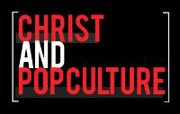Each year about this time, I get all excited for the New Year. January 1 is one of my favorite days, marking the start of something new. For me, that newness is related to an assessment of the year that is ending and a vision for the year that is about to begin.
As I look back at 2013, my breath catches. Lots of things happened. Check out this sampler:
celebrated my 40th year at the Goofy Challenge (39.3 miles of running) // started working for Revive Our Hearts // attended The Story conference at Spread Truth & met the shining Laura Karr // traveled to California // attended the Revive Our Hearts Revive Tour // started Snapchatting // enjoyed Beach retreat 2013 // ran the Champaign half marathon // survived a Cupcake Crawl w/niece Isabelle // created a Dream Map // celebrated the Hubster’s work in opening Immanuel Health Clinic // spent two glorious months in Boulder, Colorado & made precious new friends at The Well // started reading Brene Brown // found Lucky’s Bakery & Boxcar Coffee // ran the Boulder Heart & Sole half marathon // ate seven pounds of Swedish fish in a month // celebrated my parents’ 45th anniversary // discovered my personality INFP matches the Hulk (mean & green?) // cheered the Hubster in his first competitive half marathon at Indy (he won the Master’s Divison! we got to see his brother & our dear friends! and we ate Flying Cupcakes!) // traveled to Disney w/dear friends // started working for Naomi’s House // made progress on my book // enjoyed countless hours with loved ones
So much joy, so much blessing—and most of it was not listed as part of my 2013 hopes and dreams. But some of these things came about because my vision was set toward those goals. And this is why I keep on with New Year’s Resolutions.
So I’m on it for 2014, and I’m going with a theme. My dream for the new year is that my life would be fruitful:
By God’s grace, 2014 will be a year of fruitfulness for me as I yield my moments to the Lord Jesus and seek to live by His Spirit.
From this vision flow specific goals that I’ve arranged into seven categories:
- spiritual: tending to heart & soul
- relational: nurturing bonds
- physical: training the flesh
- professional: investing talents
- mental: stimulating curiosity
- domestic: creating a refuge
- financial: growing in generosity
One thing I learned this past year is that when my goals are merely a to-do list, I get overwhelmed. This dreamer needs the vision to fuel the actions! For instance, motivation and attitude are greatly lacking when I need to do some cleaning; running it through the filter of creating a refuge makes all the difference for me. I want a refuge, and that would be one with clean sheets.
Most of my goals are typical, not too out-of-the-ordinary . . . but I need them on paper because this dreamy-girl forgets things. If my life is going to be fruitful, I need God’s power working in me and focusing my efforts. There will be lots of praying happening to that end! I’m so excited to see what comes about in the next 12 months—not only what’s on paper, but also all the extra things that I would never dream about.
What are your hopes and dreams for 2014? How do you organize your goals? I’d love to hear all about it—share in the comments or post a link to your blog post detailing it. Here’s to hopes and dreams and things unseen.























